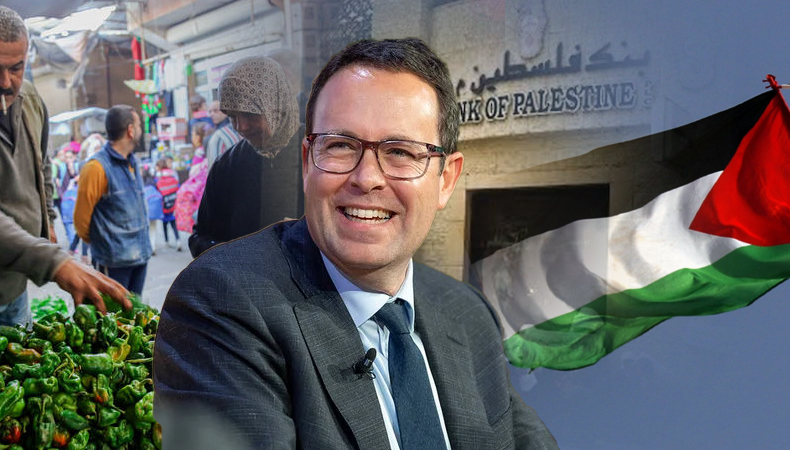Chairman of Bank said Palestine must step up efforts to safeguard its economy, ideals, and resilience

As worries grow that the two-state solution to the conflict with Israel is becoming less probable, efforts to safeguard the Palestinian economy, ideals, and resiliency must be tripled, the chairman of the Bank of Palestine said on Thursday.
At the World Economic Forum in Davos, Shawa said both Israelis and Palestinians are concerned that the two-state solution won’t materialise given the present political environment. The session was titled “For the Sake of Peace: Jumpstarting the Palestinian Economy.”
The Palestinian prime minister charged that Israel’s right-wingest government in history was preventing “even the most non-violent measures of combating the occupation.”
We’re all concerned that the two-state solution is practically at an end, Shawa remarked. And the recent Israeli elections showed us what’s going on; I’m not sure where things are going. Everyone is watching and waiting, but things don’t appear promising.
“Therefore, we must sound the alarm. To safeguard our ideals, our values of democracy and international law, [and to] protect the economy and our resilience, we must increase rather than decrease our efforts in a panic.
Read | Saudi Arabia affirms support for Palestine after attacks on Al-Aqsa, says OIC envoy
According to him, the private sector invested $2.50 to $3 for every $1 of aid that Palestine received. Don’t forget, he said, that there are still 5 million Palestinians living in the region, who do things like send their children to school, educate them, and spend their money in little and large businesses. This is not going to stop.
“That gives us hope, and the bank and its partners have been ramping up on all levels,” the author says.
Shawa continued by expressing his pride in the fact that the bank is the first in the Middle East and North Africa to have a gender-balanced board.
“You can get revolutionary change,” he continued, “if more women are in policymaking, decision-making, impacting jobs, whether it’s in the government or the private sector.”
The bank’s structure, the chairman continued, shows that it is possible to be good, gender-balanced, successful, and resilient “even under a dreadful occupation that strips you of liberties.”
“Women suffer the worst from the occupation in terms of the problems they encounter during any wartime conflict,” he declared. They consistently endure the most.




